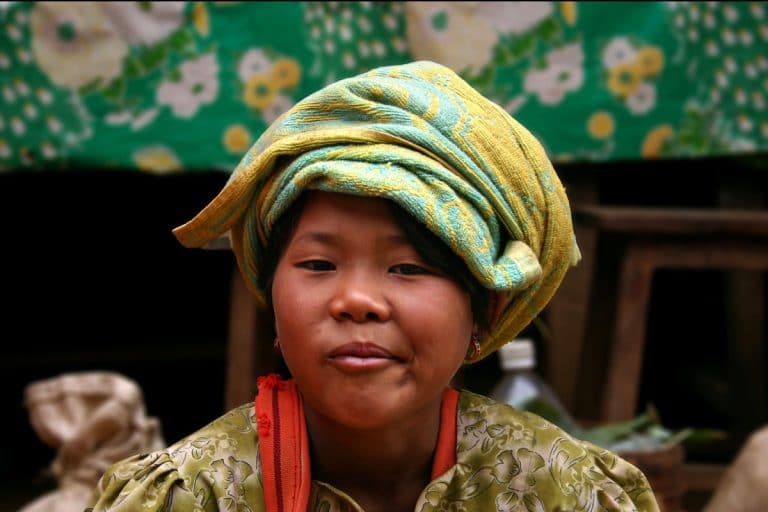Myanmar meets a new, powerful, generation of protestors

The military of Myanmar, which is also known as Burma and is the largest country in mainland Southeast Asia, has repeated its promise to hold new elections and relinquish power as anti-coup protests continue. What is the coup exactly, and how is a new generation of protestors using memes as their voice of choice?
What is happening in Myanmar?
According to the BBC, army spokesman Brig Gen Zaw Min Tun claimed that the military took control after alleged voter fraud during elections, but did not provide any evidence to back the claim up. A criminal charge had also been filed against the detained opposition leader, Daw Aung San Suu Kyi, and since 1 February 2021—which is the day the military seized control—mass protests have been taking place.
Effectively, the military have toppled the government for the time being, and Zaw Min Tun stated in the military’s first news conference that the armed forces would not remain in power for long, and promised to “hand back the winning party” after a reelection had been planned. To the people of Myanmar, this is assumed to be a coup. Zaw Min Tun accused the anti-coup protesters of violence and intimidation against the security forces.
One police officer who had been monitoring the protests has been wounded, and later died, from “lawless actions,” Zaw Min Tun continued to say in the conference. Because of the rising tension on the streets, tear gas and rubber bullets are being used to disperse crowds, and now one 19 year old protestor, Mya Thwe Thwe Khaing, is in critical condition after being shot in the head.
Much like ‘people in power’ have done elsewhere before, the Myanmar military has gifted itself power to make arrests, carry out searches and hold people for more than 24 hours at a time without a court ruling, all while telling journalists not to describe the military takeover as a coup.
More than 400 people have been detained in #Myanmar since the military seized power in a coup on Feb. 1. @Reuters graphic based on confirmed detentions so far - the true number may be higher - gives a sense of who has been taken.#WhatIsHappeningInMyanmar pic.twitter.com/ndX8OFDYEg
— Poppy McPherson (@poppymcp) February 16, 2021
What’s impacting this particular protest is the new, young generation of people who have taken to the streets, and the growing numbers are bringing a new way of protesting as well. They are drawing on a range of internet memes, slogans, cartoons and cultural symbols to make themselves heard.
The meaning of memes and symbols being used in Myanmar
The three finger salute—initiating from The Hunger Games trilogy and first appropriated into real life by the Thailand protesters in 2014, when they were facing their own military coup—is a shared signal of defiance. It names and demands equality, freedom and solidarity.
The three finger salute from The Hunger Games (via protesters in Thailand) has been a prominent feature of today's demonstrations in Yangon, which have drawn tends of thousands of people. #WhatsHappeningInMyanmar pic.twitter.com/on0zBzywRB
— Frontier Myanmar (@FrontierMM) February 7, 2021
Cartoon characters that include Pepe the Frog and the internet memes Doge and Cheems are being used to ridicule the senior general Min Aung Hlaing as well as other military leaders. The place cards they hold above their heads are written in not only Burmese, but English too, suggesting that they want a worldwide reach. They hold phrases such as, “The situation is so bad, even the introverts are here.” Songs are also being set for the protests that were previously used by generations of pro-democracy activists such as western rap and hip-hop soundtracks.
As The Conversation puts it: “Myanmar’s young protesters epitomise a culture of transnational activism now favoured by a generation of technically savvy and increasingly cosmopolitan young people intent on resisting the imposition of authoritarian agendas.”
Authorities have suspended the internet and blocked social media platforms such as Facebook twice from being used, so many anti-coup protesters are turning to VPN access in order to share what their country is going through via Instagram or TikTok.
Not for the first time, young people are playing a decisive role in Myanmar’s growing civil disobedience movement, demanding independence and democracy. Student protests have come around like a pattern, first in 1920, then 1936, 1962, 1974, 1988, 2007 and 2015. Thanks to the power of social media and the technological global connectivity that it provides, protests are starting to no longer be left up to one country’s people alone, but instead individually part of something much bigger.




